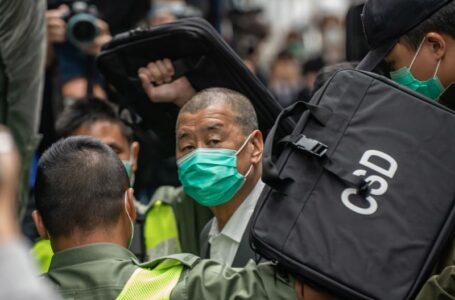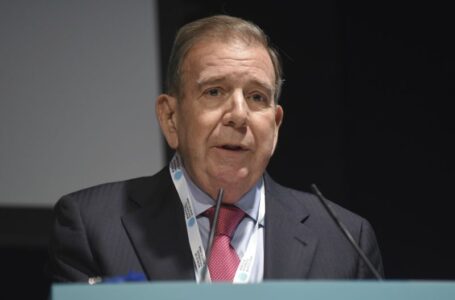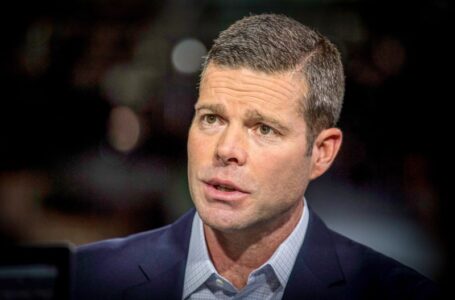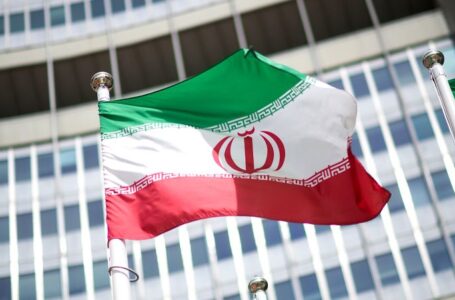Doctors Without Borders halts operations in Haiti’s capital, citing police threats
With Harris and Walz in, some Democrats still weigh skipping the polls
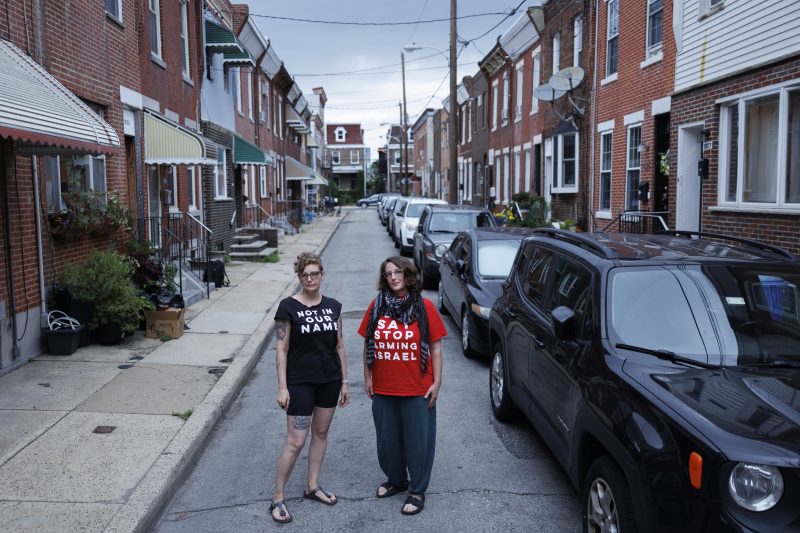

PHILADELPHIA — She had backed Democrats in every presidential election since the political rise of Barack Obama. She had knocked on doors, taped up campaign signs and called strangers to ask: Are you ready to vote?
Now her party’s nominee was only three miles away, drawing exuberant crowds in the urban heart of this swing state, and Leah Shepperd couldn’t even bring herself to watch on television.
“I just can’t stomach it,” she said.
Over at Temple University, Vice President Kamala Harris had just introduced her running mate, Minnesota Gov. Tim Walz (D). Applause for the pair cracked “120+ decibels,” one journalist at the Tuesday rally reported, citing his Apple watch. Walz thanked Harris for “bringing back the joy.”
Shepperd, 49, could feel none of that joy. Not when the United Nations had accused Israel of a “crime against humanity,” and when, in her view, the White House — Harris included —wasn’t doing enough to help the people of Gaza.
“I do want to vote,” she said. “But ethically, I’m stuck.”
During the primaries, pro-Palestinian activists urged voters to withhold their support for President Joe Biden over his handling of the Israel-Gaza war. Roughly 700,000 Democrats nationwidechecked a no-candidate option such as “uncommitted,” left their presidential ballot blank or wrote in someone (or something) else. While that represents a tiny sliver of the electorate — and analysts lack data on each voter’s motivation — some liberal strategists said the apparent protest turnout revealed weak spots for the emerging Harris campaign in some of the election’s most competitive battlegrounds.
In Michigan, home to the nation’s largest Arab American communities, 13.3 percent of Democratic primary voters selected “uncommitted.” In Wisconsin, where Biden won in 2020 by roughly 20,000 votes, more than double that number signaled the same status.And in Pennsylvania, where the margin is expected to be just as razor-thin, about 60,000 people, including Shepperd, wrote in some version of not-Biden. All three states carry outsize importance in determining November’s winner.
In a late Wednesday statement, the Harris campaign said the vice president remains focused on securing a cease-fire while ensuring that Israel is protected against “Iran and Iran-backed terrorist groups.” It also nodded to her earlier pressure on Israel to lessen Palestinian agony.
“As she has said, it is time for this war to end in a way where: Israel is secure, hostages are released, the suffering of Palestinian civilians ends, and the Palestinian people can realize their right to dignity, freedom, and self-determination,” the statement said.
Four days after Biden dropped out of the contest and endorsed his running mate, protesters in the Keystone State aimed a fresh effort at Harris. Volunteers shared a digital pledgethat declared: “If they want our votes for President, they must do everything in their power to bring about a cease-fire.”
“You want my vote?” asked one signee, Aniqa Raihan, a 28-year-old law student at Temple University. “You have to treat Palestinians like real human beings.”
Even as a line to see Harris snaked for blocks around the campus this week, Raihan had no fear of missing out as she dodged that scene in the comfort of her apartment.
Since the deadliest-ever Hamas attack on Israeli homes and the kidnapping of civilianson Oct. 7, Israel’s counteroffensive has killed at least 39,000Palestinians, according to Gaza’s Health Ministry. International aid groups have accused Israel of blocking assistance to more than 2 million civilians, including starving children — the majority of whom have lost their homes. (Israel has denied that charge.)
It disturbs Raihan that the United States continues to supply Israel with weapons. When the White House asserted last month that a temporary cease-fire was closer than “ever,” she wondered why Biden and Harris hadn’t cranked up the pressure sooner.
“If I voted for Kamala right now,” Raihan said, “that would be like telling those kids, ‘This doesn’t matter to me.”
It’s tough to know how many Democrats would stick to a no-vote threat in November. Yet the Harris campaign should not underestimate the grass-roots movements focused on Gaza, said Joe Corrigan, a Democratic strategist in Philadelphia.
“These are incredibly committed voters and activists,” he said. “They’re the same people who will knock on doors, make phone calls, volunteer to text-bank and organize their workplaces.”
At the same time, he noted, Harrisvowing to upend the Biden administration’s approach to the conflict could sour voters loyal to Israel, especially as the Middle East teeters on the brink of a broader war.
“Any move is risky,” Corrigan said.
Shepperd, a child-care provider, had braved the rally traffic to visit a new friend’s South Philly rowhouse.
Hannah Zellman, 42, hadn’t felt like tuning into the live stream, either — no matter how much the internet was gushing about Harris and Walz. The star of her living room was a pit bull named Cinna.
“No amount of phone calls or protesting has worked, ” Shepperd told her, scratching Cinna’s brown-spotted ears.
“Nothing has been working,” agreed Zellman, a social worker.
They’d met through Pennsylvania’s “no cease-fire, no vote” group. Both had signed the pledge: If strikes on Gaza do not halt by the election, and Harris hasn’t committed to an arms embargo on Israel, they will not cast a ballot.
Shepperd had joined the movement after learning that her 7-year-old son’s former teacher was an organizer. It was an easy “yes,” she said: The photos she had seen on Instagram — the rubble, the bodies, the bloodied children — were haunting her.
Neither woman has ties to the Mideast. Both are Jewish. Both think the leaders in Washington have been too soft on Benjamin Netanyahu, who, over the last nine months, has taken no steps toward compromise. They blamed him, too — but they couldn’t hold the Israeli prime minister accountable at the polls.Both believed the United States should not keep arming a military accused of mass-slaughtering civilians.
“This is our leverage,” Zellman said.
“This is all we have,” Shepperdagreed.
“This” meaning their swing-state vote.
In such a close race, they understand that denying support for Harris could benefit Donald Trump, whose platform Zellman described as “deadly and dangerous.”
“What’s really helping Trump,” she said, “is that this administration is not listening to the voters who support a cease-fire.”
Plenty of their friends disagree with their November boycott. Shepperd’s husband isn’t thrilled about it, either.He fears, among other things, what a second Trump term could do to the Supreme Court.
She is scared, too. Still, she said, she can’t ignore her conscience.
“I want to be able to vote,” she said.
Three miles away, across the ideological chasm, Harris was wrapping up her speech. She had not mentioned Israel or Gaza. At a rally the next evening in Detroit, though, pro-Palestinian protesters interrupted her.
“If you want Donald Trump to win, then say that,” Harris remarked, according to clips proliferating on social media. “Otherwise, I am speaking.”
Shepperd watched the exchange and wondered: Where is the empathy?
Note to self, she thought: Mass-text the link to join “no cease-fire, no vote.”
Scott Clement and the Associated Press contributed to this report.



